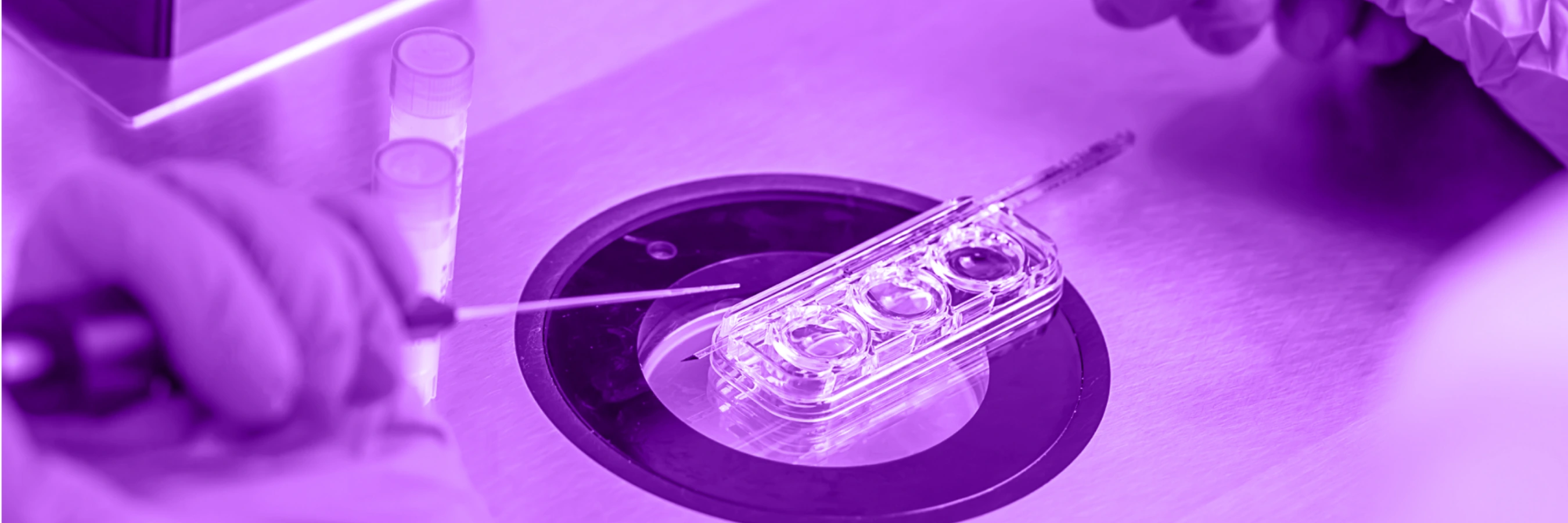Research & Science
We actively participate in IVF research to drive fertility science forward and improve results.
Our vision of a science-led and patient-focused fertility group defines the approach of our dedicated teams of scientists, researchers and specialists.
IVF research and science
Care Fertility have been at the forefront of fertility and IVF research for decades. Many of our team members have worked in the field since the 70s and 80s and are behind a number of global and national firsts. By continuing this legacy we hope to make more discoveries and advances that can help us to improve the chance of success for everyone who needs our help.
Training & university collaborations
Our team collaborates with renowned organisations, including the Universities of Cambridge, Chicago, Liverpool John Moores, Monash, and Sheffield, among others, to explore new routes and procedures that could enhance our treatments. Care Fertility leads in the training of specialist staff and has been responsible for the highest proportion of graduates from the Scientist Training Program (STP) outside of the NHS for several years. Additionally, we have a dedicated training suite within our Manchester clinic, a state-of-the-art facility for training and educating in IVF technologies.
Liverpool John Moores MSc in Clinical Embryology
Our MSc in Clinical Embryology in partnership with Liverpool John Moores (LJMU) provides a comprehensive understanding of assisted reproductive technologies (ART) and equips aspiring embryologists with the skills and knowledge to make a real difference in the lives of families struggling with infertility.
Students will gain practical experience through hands-on training sessions in our state-of-the-art laboratories at LJMU and Care Fertility Manchester. These labs feature dedicated zones for learning advanced techniques using microscopes, imaging, and micromanipulators.
The curriculum is research-led, ensuring that all students are exposed to the latest advancements in the field. Upon graduation, participants will be well-positioned for a competitive edge in the fertility treatment jobs market.
Please note that this degree does not lead to state registration as a Clinical Scientist. For further careers advice on the route to becoming an embryologist/andrologist, please contact: scienceadmissions@ljmu.ac.uk for more information.
RCOG sub specialist training
Care Fertility was the first independent sector clinic to be awarded RCOG sub specialist training posts for reproductive medicine in collaboration with University Hospitals Derby to train the next generation of reproductive medicine consultants: we currently have three clinicians in these posts.
Ultrasound MSC for Assisted Reproduction
We are the only UK IVF provider to host an MSc 20 credit module in Ultrasound for Assisted Reproduction, and we are currently working on future modules in collaboration with Birmingham City University to provide postgraduate education for nurses, midwives and doctors, who will be able to achieve a Global MSc in Assisted Reproduction. This post graduate qualification, promotes professional development and education in our nursing, medical, and allied health professional workforce, supporting governance and maintaining evidenced based practice, to promote optimum outcomes. As we are dedicated to collaboration and continuous quality improvement, to improve safety and outcomes across the IVF sector, we support applications from nurses, midwives and doctors from outside across the UK and internationally.
HFEA-licensed programmes
We work with scientists around the world on research programmes licensed by the Human Fertilisation and Embryology Authority, striving together to find new solutions and treatments that could help our patients in the future.
Unmatched experience
Our scientists also make regular contributions to the research field. They speak at and attend lectures, workshops and conferences around the world. This effort not only supports the development of our teams but also the profession, and many of our scientists have published papers and books on their work – some of which have even won them awards
World Firsts

